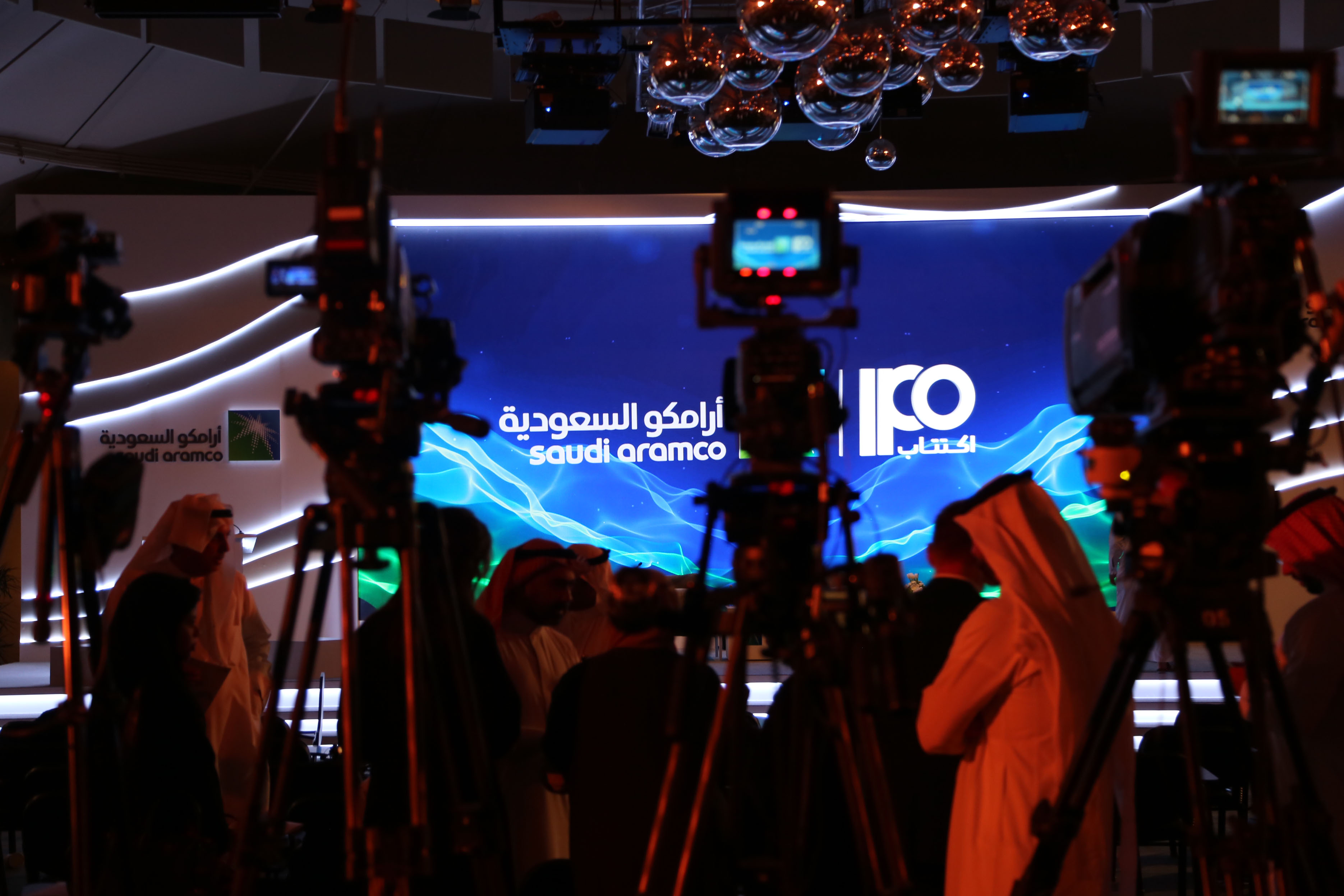

Saudi Arabia's national oil company Saudi Aramco announced on 5 December that it had completed the initial public offering (IPO) of 200 billion shares in the company at a price of SR32 ($8.53) a share.
The flotation raises $25.6bn of equity for the company, making it the biggest-ever IPO in history, and puts the overall worth of Aramco at $1.7tn.
The final valuation falls $300bn short of the $2tn value Riyadh had sought when it first announced plans to sell a stake in the company, but it confirms Saudi Aramco as the biggest company in the world by market valuation.
It also represents the conclusion of a four-year-long process that was started in January 2016 by Saudi Crown Prince Mohammed bin Salman as the centrepiece of the kingdom's Vision 2030 economic reform programme.
Aramco IPO objectives
Aramco’s IPO has achieved several important objectives for the company and for Saudi Arabia.
The most obvious is that it has raised $25.6bn in equity for Saudi Arabia that will be immediately reinvested into strategic projects.
The kingdom has embarked on a huge investment programme aimed at supporting the diversification of the Saudi economy, and this is an important step for that programme.
The completion of Aramco's first share sale confirms Saudi Arabia’s national oil company as the most valuable company in the world, and the fact that the IPO was oversubscribed by 4.65 times confirms that there remains considerable interest and confidence in the Saudi economy.
The Aramco IPO is also a critical milestone in the kingdom’s privatisation agenda, another pillar of Vision 2030, which aims to roll back the state as the primary driver of economic growth and employment in Saudi Arabia, and to stimulate increased private sector investment.
The IPO has been conducted in parallel with a raft of capital market reforms that have improved transparency and corporate government in the kingdom. And the listing of the world’s most valuable corporate entity on the Saudi stock exchange, the Tadawul, adds a huge new asset to the Saudi market.
New questions
That said however, the Aramco IPO has also failed to deliver in some key areas.
An important aspect of the flotation when it was first announced was to attract international institutional investors into the Saudi market.
The fact that the sale ended up only being offered to local and regional investors is a huge disappointment and reflects a major mismatch between Riyadh’s valuation of the company and appetite for Saudi risk from international investors.
The failure to launch a parallel international listing is also disappointing and reflects the political complexities associated with the privatisation.
One of the biggest concerns for Riyadh however, as well as for businesses in Saudi Arabia, is that it has only raised $25.6bn.
This is a huge windfall, but it is $74.4bn short of the $100bn that was originally promised.
A large portion of this money was due to be used to finance a series of huge megaprojects being planned by Riyadh and the Public Investment Fund (PIF).
The question now is, what impact will this shortfall have on Saudi Arabia’s investment plans.
These strategic projects will still go ahead, but the timing, the scale and how they are to be funded will all be affected by the reduction in capital raised by the sale.
These questions add new uncertainties to an already challenging business environment.
You might also like...

Rainmaking in the world economy
19 April 2024

Oman receives Madha industrial city tender prices
19 April 2024

Neom seeks to raise funds in $1.3bn sukuk sale
19 April 2024

Saudi firm advances Neutral Zone real estate plans
19 April 2024
A MEED Subscription...
Subscribe or upgrade your current MEED.com package to support your strategic planning with the MENA region’s best source of business information. Proceed to our online shop below to find out more about the features in each package.




